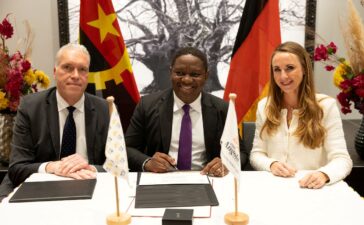A city of contradictions, Malabo has developed rapidly thanks to a booming offshore oil industry. The capital of Equatorial Guinea offers a startling and fascinating contradiction between raw beauty and industry, with oil platforms scattering the harbour and virgin forests surrounding the underdeveloped urban sprawl.
Getting There and Away
The Saint Isabel International Airport in Malabo has regular flights from Europe, as well as international flights from within Africa. Carriers include Ethiopian, Kenya Airways, Iberia and SwissAir. Although domestic flights are also offered, be aware that there are, as yet, no safety regulations governing the industry. As Malabo is situated on Bioko Island, there are several ferries to the mainland. However, these can be time consuming. Security is stringent so be sure to have all your paperwork in place before entering the country, including up to date yellow fever certificates.

Getting Around
For fuss free travel from the airport, booking a shuttle is a good option; major hotels offer free shuttle services. Hiring a car is not recommend but if you take this option, be sure to have all documents on you at all times as it is likely you will be stopped at several roadblocks. Taxis are very affordable in the city but there are still very few paved roads so they will tend to stay on these roads. The capital is eminently walkable, and small enough to be navigated easily. Bush taxis connect Malabo to other towns and passenger boats can be taken to surrounding islands, such as Corisco.
Where to Stay
Due to Malabo’s booming oil industry, there are several upmarket, but rather expensive, hotels in the city. For the weary business traveller, both the Sofitel Malabo President Palace and the Sofitel Malabo Sipopo le Golf offer the requisite luxury. Another sure bet is the Hilton Malabo situated close to the business district. For another safe option, the Hotel Ibis Malabo offers all the amenities but at a lower cost.
Eating Out
Thanks to Malabo’s thriving expatriate community, there are a number of great choices to eat. La Luna is a popular spot; boasting a great view out over the harbour, this French/international themed restaurant offers great food and a quaint atmosphere. Another favourite of expats and chic locals, Cafe Malabo is a great venue for dinner, cocktails and live music. It is rather pricey but certainly worth it when you need to unwind.
Nightlife
As befitting its cosmopolitan nature, Malabo affords an energetic nightlife. The combination of balmy weather, African rhythms and Spanish flair makes for a great night out. The Horacio bar at the Sofitel Malabo Sipopo le Golf is a good place for sundowners and cocktails. Start your night with views over the ocean or, on clear evenings, across to Mount Cameroon. From there, typically, the night life in Malabo is dictated by where the expat crowd frequents, or local hangouts, with pubs and bars offering homemade alcohol or cheap beer. Malabo offers a large variety of alcohol but also boasts great local wines.

In the City
A must-see for travellers is the Malabo Saint Isabel Cathedral, which is constructed in a Gothic-Spanish style. The Presidential Palace is nearby and is also worth a look. For indoor pursuits, the Spanish and French cultural centers provide interesting insights into the culture of the country, while the Claretian Mission at Malabo has an archeological-ethnographic museum. The Museum of Modern Art Equatorial Guinea is also well worth a visit. Malabo is built on the edge of a sunken volcano so hiking is a great option, as is mountain biking, for those more inclined to outdoor activities.
Shopping
Facilities for tourism are limited but growing. However chas machines are still rare and often out of service. Major banks at the airport are your best bet for functioning machines. Equatorial Guinea uses the CFA franc as currency. Everyday shopping is mostly done at small stores or market stalls. Refreshingly, there are no huge shopping malls in Malabo. Instead, take in the many lively markes where a wide array of local crafts and souvenirs can be found. If you’re feeling adventurous, try the local delicacies but avoid raw food.

Out of the City
Although tourism is largely underdeveloped, there’s still plenty to see and do. One of the best ways to enjoy down time is one of the nearby beaches. Aim for a private beach,as these are generally better looked after. Equatorial Guinea offers robust rainforests and unparalleled wildlife viewing opportunities. Monte Allen National Park is a great place to explore, while the remote island of Corisco boasts incredible white sand beaches. If city exploring is more your thing, the mainland town of Bata offers an intriguing glimpse into the past colonial history of the country.
Language and Culture
Spanish and French are the official languages and are spoken in the major hotels, but most inhabitants speak native languages as their mother tongue. Since Portuguese colonization in 1474, Equatorial Guinea passed into he hands of the Spanish, achieving independence in 1968. The island was also a pivotal naval base for the efforts to suppress slave trade and mainly newly freed slaves were settled thereafter. As such, Spanish culture flavours African traditions and, with the economic boom accompanying the oil discoveries, colonial noticeably meets modern Malabo.
Health and Safety
Be aware that Equatorial Guinea is a hot spot for Malaria. In addition, check which other vaccinations are recommended before travelling. Once in the country, it is advisable to stick to bottled water. The country is not particularly tourism friendly and travellers might be subjected to several roadblocks and searches. Your papers will be checked often so make sure you have them at all times and in order. If in doubt, ask for permission before taking photos.








